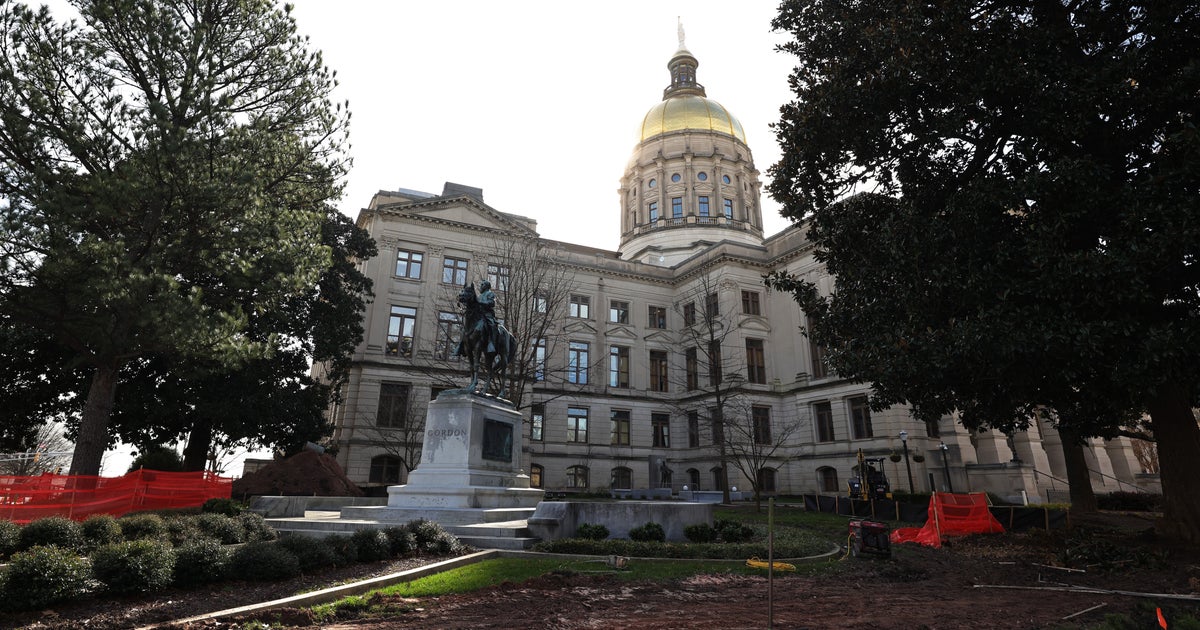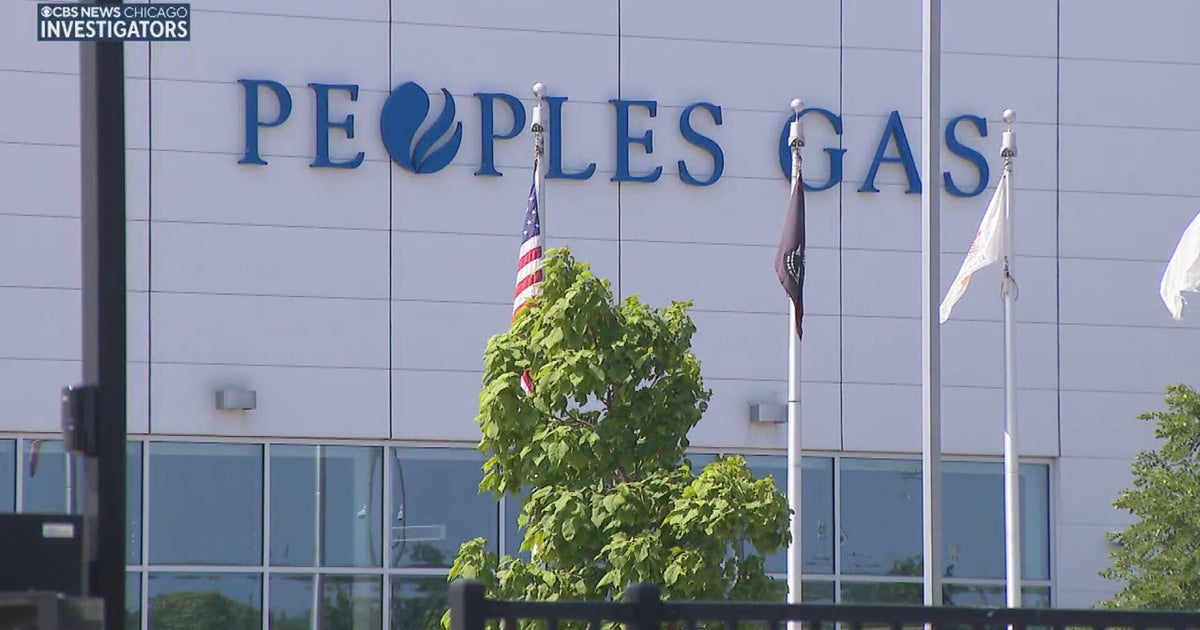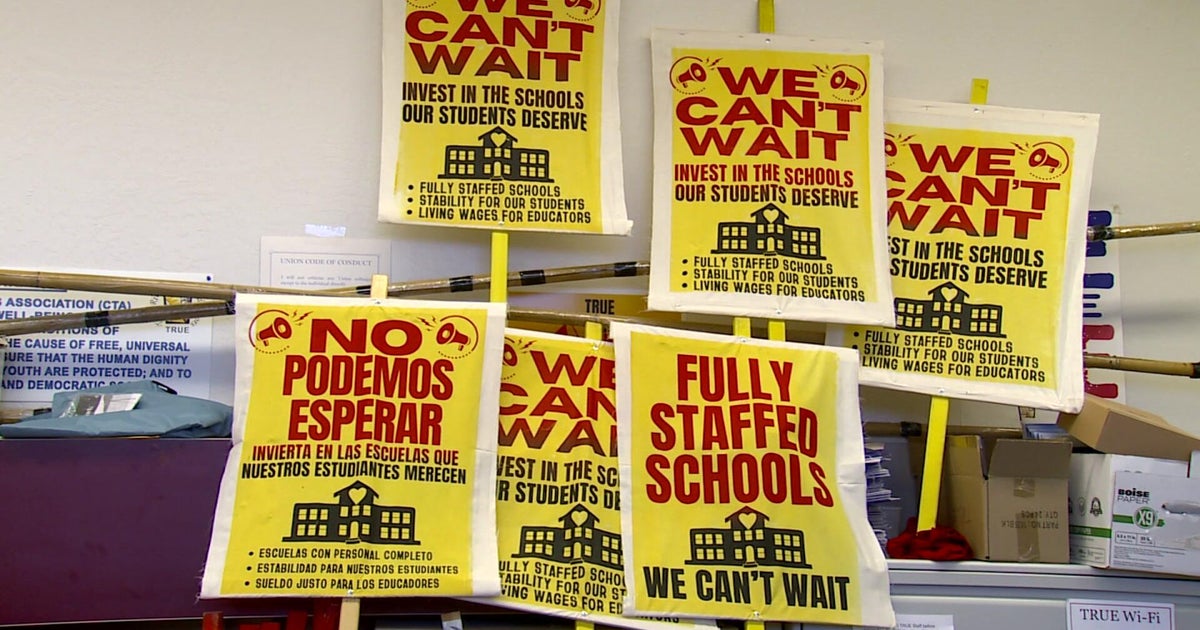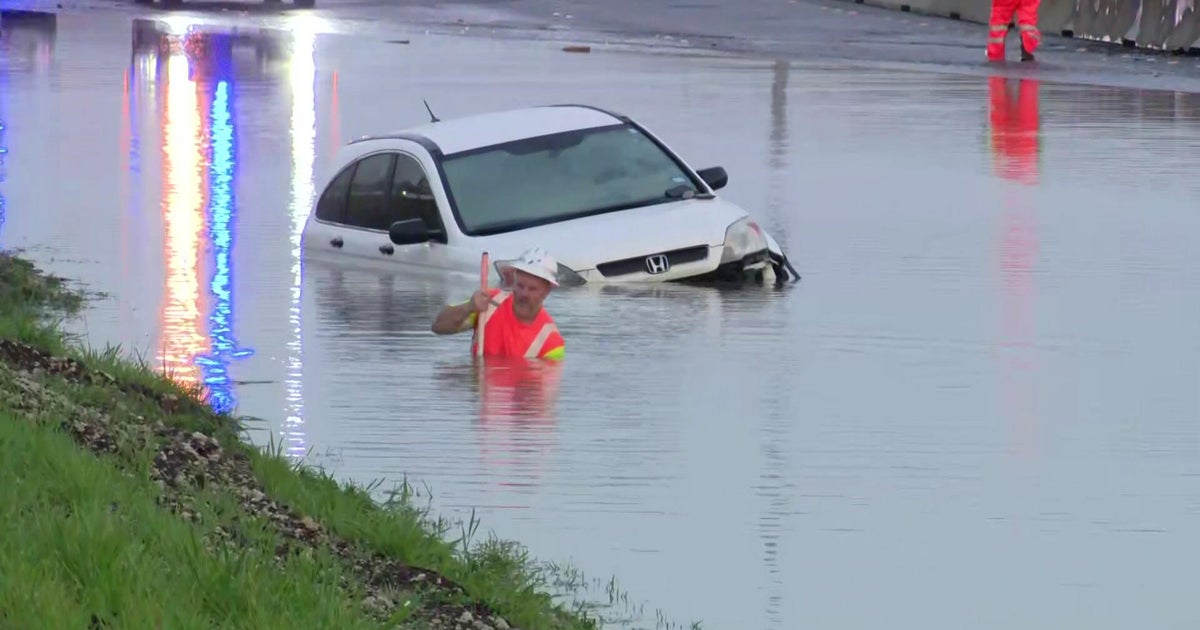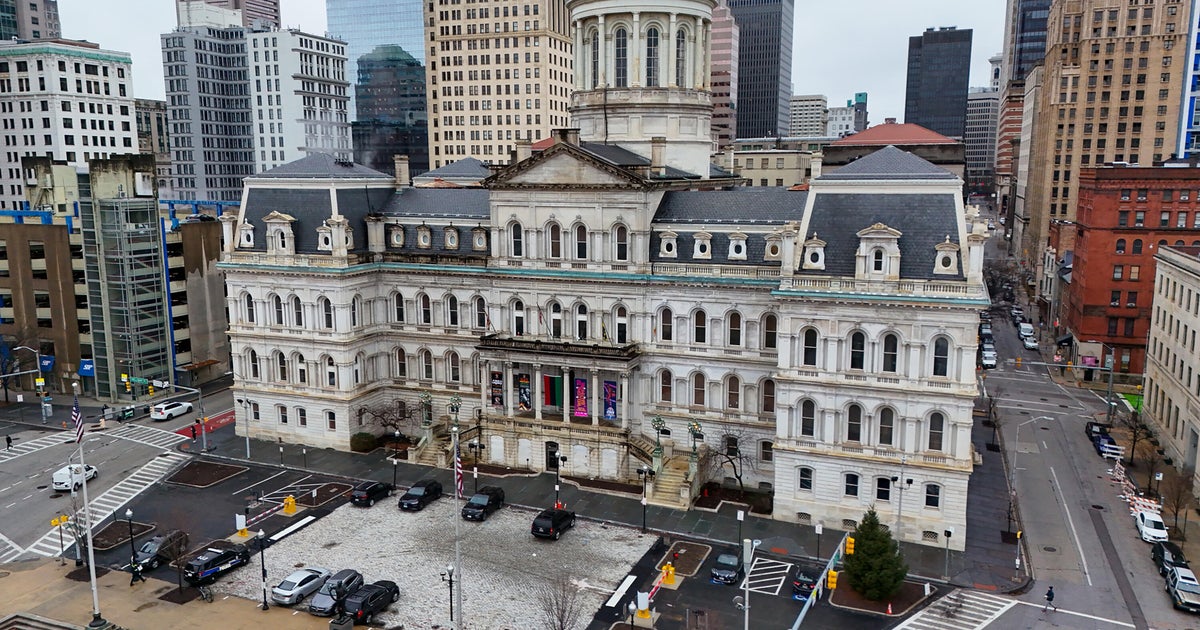UPDATED: Quinn Defends Income Tax Hike
Governor Pat Quinn Says "We Had To Take Decisive Action. ... Our Fiscal House Was Burning."
UPDATED 1/12/11 - 6:05 p.m.
SPRINGFIELD, Ill. (CBS) -- Gov. Pat Quinn is defending his support for a massive income tax increase, saying the state was facing a crisis and "we had to take decisive action."
The General Assembly worked overnight Wednesday to approve a plan to raise the personal income tax rate from 3 percent to 5 percent for the next four years. Then the rate drops to 3.75 percent. In 2025, it would drop again to 3.25 percent.
When he ran for governor last year, Quinn said he would only sign an increase of half that size, but he shrugged off criticism that he was breaking a promise to voters.
LISTEN: Newsradio 780 Political Editor Craig Dellimore Reports
Podcast
LISTEN: Mayor Daley Opposes Income Tax Hike, Craig Dellimore Reports
Podcast
"We have an emergency, a fiscal emergency. Our state was careening towards bankruptcy, to fiscal insolvency," Quinn said.
The governor denied he had been dishonest with voters for pushing for a 1 percentage point tax hike, but later agreeing to the 2 percentage point tax hike. Quinn said financial experts told him the state's budget problems got worse in the last two months, prompting a need for a larger income tax hike.
"Our house was burning," Quinn said. "Our fiscal house was burning."
Quinn said it's important for the Illinois economy that state government not be a "fiscal basket case."
"This is a temporary income tax to deal with the immediate fiscal emergency our state faces; to pay the bills so we don't have severe cutbacks in education, health care, public safety, important things that are absolutely vital to the lives of the citizens," Quinn added.
He also pointed to spending restrictions included in the tax plan that would limit spending increases to 2 percent a year.
If officials spend above those limits, the tax increase will automatically be canceled. The plan's supporters warned that rising pension and health care costs probably will eat up all the spending allowed by the caps, forcing cuts in other areas of government.
The limits allow next year's spending to increase considerably so the state can make its required contribution to government retirement systems, pay overdue bills and cover other costs that had been shoved aside. After that, however, spending could not grow more than 2 percent annually for the next three years or else the tax increase would be reversed.
"We have to understand that solving our budget and fiscal problems and paying our bills relies on restraint of spending today and tomorrow," Quinn said. "These are very hard caps on spending."
As CBS 2 Chief Correspondent Jay Levine reports, the tax plan became reality in part due to backroom dealing between Quinn and top Democrats during the final hours of the lame duck legislative session.
Several African-American lawmakers signed onto the deal only because of a $250 million deal for education funding.
Sen. Rickey Hendon (D-Chicago) said the tax deal would not have gone through without a commitment for that money for public schools.
"The governor and (Senate President John Cullerton) said we'd get some money, $250 million for education," Hendon said.
He said that "without a doubt" he and others were ready to walk away from the tax deal without that concession.
Quinn defended the agreement to set aside $250 million for public schools, saying that a good education system is vital to a good economy.
With the tax plan expected to raise nearly $7 billion a year in new revenue, several other things must go according to plan to close the state's $15 billion budget deficit.
The state owes $8 billion in unpaid bills to various contractors and service providers and a bond deal to borrow money to pay those bills failed, but lawmakers could try again.
With a structural deficit of about $6 billion a year, the tax hike might be enough if revenues continue to go up, if lawmakers stick to spending caps put in place as part of the tax deal and if the tax hike doesn't drive too many businesses out of the state.
But Republican critics say the hike will harm middle class families.
"This means hundreds of dollars for Illinois families that they'll be paying more to the State of Illinois, and the irony is the money they have been sending to the state has been so grossly mismanaged for the last decade," said state Senate Republican Leader Christine Radogno (R-Lemont.)
The tax hike is not set up to be permanent. After four years, it drops to 4 percent.
"This is always tough to raise taxes," Cullerton said. "We've done it before under Republican governors, and when there's been big recessions, and that's what we responded to."
The higher taxes will generate about $6.8 billion a year.
In real numbers, if your gross income is $50,000 a year, your state income taxes will rise from $1,500 to $2,500 a year.
The hike will also boost the corporate income tax rate by nearly 50 percent, from 4.8 percent to 7 percent. In 2015, it would drop to 5.25 percent and in 2025 would drop again to the current rate of 4.8 percent.
In addition to the corporate income tax, many businesses in Illinois pay a "Personal Property Replacement Tax" of 2.5 percent of income, bumping their corporate tax rate to 9.5 percent.
LISTEN: Newsradio 780's Kris Kridel reports on reaction from business groups
Podcast
The governor said the plan is vital to turning around the state's overall economy.
"To have a strong economy you have to have the state of Illinois in fiscal good shape," Quinn said.
The proposal passed the House on Tuesday night 60-57, the bare minimum. No Republicans backed the measure there or in the Senate, where the measure passed 30-29.
Other pieces of the budget plan failed.
Lawmakers rejected a $1-a-pack increase in cigarette taxes, which would have provided money for schools. They also blocked a plan to borrow $8.7 billion to pay off overdue bills, which means long-suffering businesses and social-service agencies won't get their money anytime soon.
House Speaker Michael Madigan (D-Chicago), sounding weary, said Republicans should have supported some parts of the plan instead of voting against everything.
"They're on the sidelines. They don't want to get on the field of play," the Chicago Democrat said. "I'm happy that the day has ended."
But Republicans noted they were not included in negotiations. They also fundamentally reject the idea of raising taxes after years of spending growth.
"We're saying to the people of Illinois, 'For eight years we've overspent, now we're going to make it your problem,"' said Rep. Roger Eddy. "We're making up for our mistakes on your back."
Republicans predict the tax eventually will be made permanent.
"It's a cruel hoax to play on citizens to say this is temporary," said House Minority Leader Tom Cross, R-Oswego.
Democrats bristled at being blamed for the state's financial problems, although they've controlled the governor's office and both legislative chambers since 2003.
They said some of the problem began under Republican governors and that Republicans backed some budgets that increased spending. They argued the national recession sent state revenues into a nosedive and that Democrats already have cut spending by billions of dollars.
"This mess is a mess that is the responsibility of all of us as Republicans and Democrats, of several different governors and part of the mess isn't even anybody's fault," said House Majority Leader Barbara Flynn Currie, D-Chicago.
The new tax money will balance the state's annual budget and let officials begin chipping away at the backlog of unpaid bills. Borrowing money, and then repaying it with a portion of the tax increase, would have allowed those bills to be paid immediately, aiding organizations that provide services for the state but go months without being reimbursed.
The delay and the spending limits are "very troubling" to those groups, said Sean Noble, policy director for Voices for Illinois Children, a member of the statewide Responsible Budget Coalition. Still, he called the tax increase "an enormous step" toward putting Illinois on sound financial footing.
Republicans accused Democrats of doing irreparable harm to Illinois families and businesses. Business leaders decried the proposal as a job-killer.
"Based on this particular legislation the only businesses that will benefit are the moving companies that will be helping many of my members move out of this particular state," said Gregory Baise, head of the Illinois Manufacturers' Association.
Democrats countered that even with the increase, Illinois' tax rate will be lower than in many neighboring states -- Iowa's top rate is 8.98 percent, Wisconsin's is 7.75 percent. They also maintain that without more money, state government may not be able to pay employees by the end of the year. Major government services might have to be halted, they warn, and groups waiting for state payments will go under.
Spending limits were added to the plan to win the support of some suburban Democrats. Republicans said the limits don't do enough to clamp down.
(TM and © Copyright 2010 CBS Radio Inc. and its relevant subsidiaries. CBS Radio and EYE Logo TM and Copyright 2010 CBS Broadcasting Inc. Used under license. All Rights Reserved. This material may not be published, broadcast, rewritten or redistributed. The Associated Press contributed to this report.)
